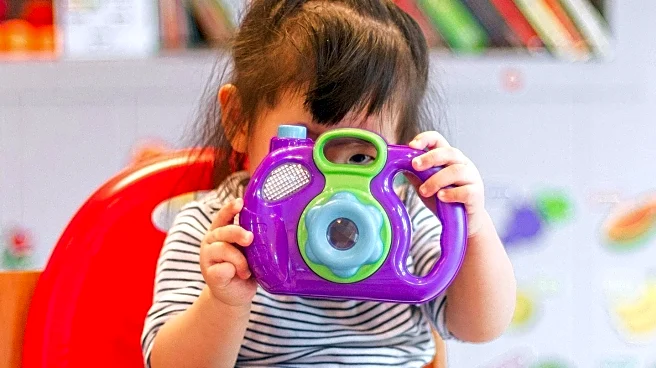What's Happening?
AI-powered toys from China are making their way to American shelves, sparking debate over their impact on children's development. These toys, valued at $34.87 billion, are projected to grow significantly,
with China leading the market. Examples include FoloToy, which can mimic a parent's voice, and BubblePal, a toy that interacts with children. Experts express concerns about the potential negative effects on children's social skills and emotional development. Some argue that these toys could lead to a decrease in real-life social interactions and creativity, while others see potential educational benefits.
Why It's Important?
The introduction of AI toys in the U.S. market raises important questions about the role of technology in child development. While these toys offer innovative ways to engage children, they also pose risks to traditional social and emotional learning. The debate highlights the need for careful consideration of how technology is integrated into children's lives. Parents, educators, and policymakers must weigh the benefits of educational advancements against the potential for reduced human interaction and creativity. The growing presence of AI in toys could influence future educational tools and parenting strategies.
Beyond the Headlines
The ethical implications of AI toys extend beyond immediate developmental concerns. As these toys become more prevalent, issues of data privacy and security arise, particularly regarding the collection and use of children's data. Additionally, the cultural impact of AI toys, especially those originating from China, may influence perceptions of technology and globalization. The long-term effects on children's cognitive and social development remain uncertain, necessitating ongoing research and dialogue among stakeholders to ensure that technological advancements align with societal values and priorities.










